From the dominance of dwarf Spitz to where the homebody wants to walk (1.5 months in Spain)
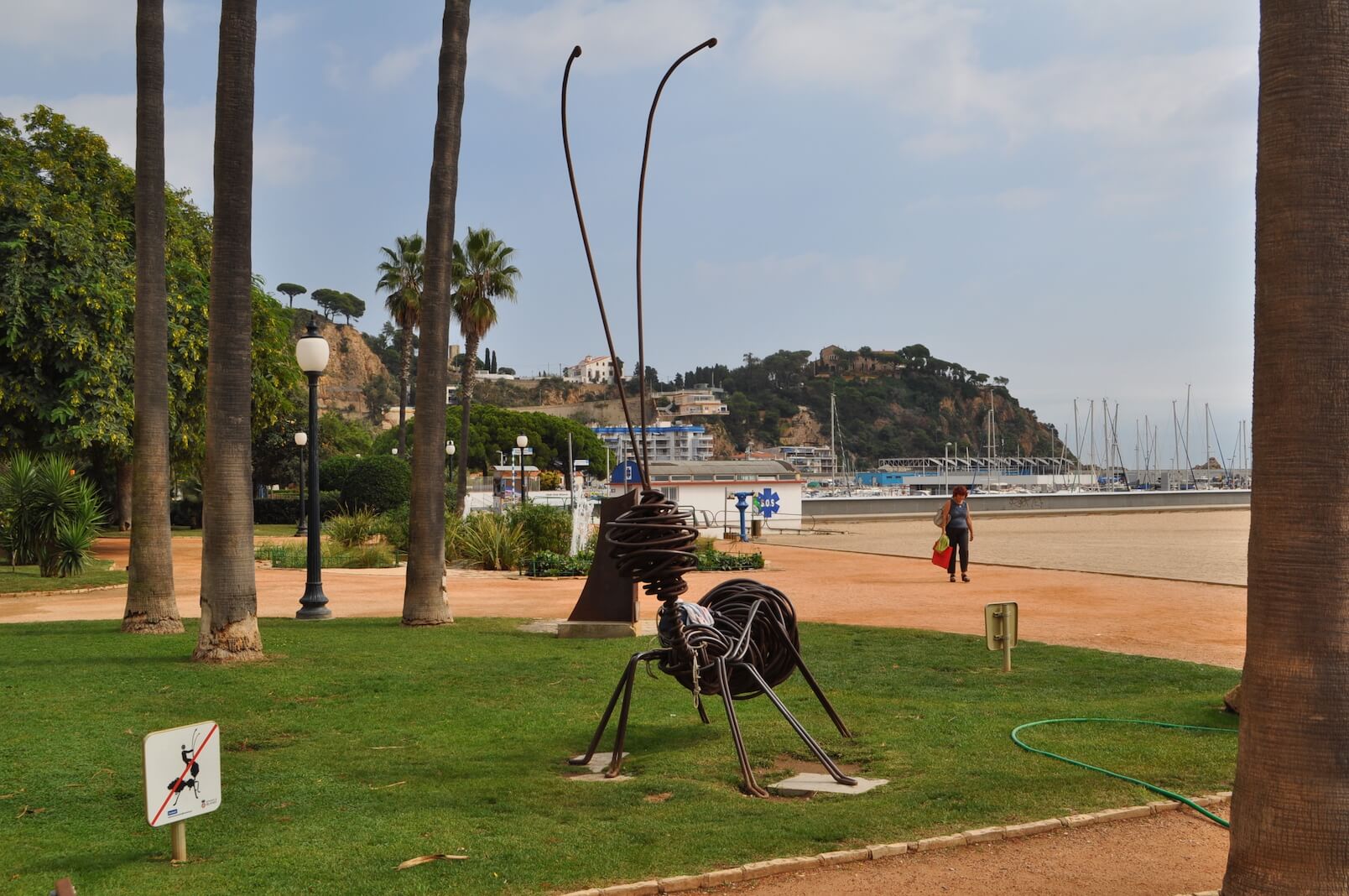
Blanes promenade. The sign is understandable without knowledge of Spanish.
Not so long ago I spent a month and a half in Spain. During this time, I recovered from domesticity, caught a Catalan referendum, got into childhood, learned to distinguish Spanish from Catalan, made an offer, found a defibrillator on the street and reassured the girl after a collision with a half-meter jellyfish.
We lived mainly in Blanes, a city 70 km from Barcelona. To always be in touch during the trip, one of the first things was to buy a SIM card .
There are three major telecoms: Vodafone, Movistar, Orange. Vodafone had the cheapest offer, 4 Gb and 90 minutes for 15 euros. Autumn in Spain begins on September 21, so I got to another summershare with increased traffic, usually at that 2 Gb rate. I chose them, I went to take shape.
They immediately realized that foreigners needed a SIM card. The operator began to fill out the form with the data from my passport, but something went wrong on the finish line: a large red message pops up in the very center of the screen. The worker peers at him intensely, turns the screen towards me, taps on the big red message with her finger, spreads her hands and offers to come on Saturday. “Temporary problems,” she says in broken English.
Saturday was the same; Sunday was a day off; gave them a head start one day and the next time came on Tuesday. Again a big red message. I recall a story from work, when for one specific user the system crashed for some reason, but for the rest it worked perfectly; I suggest registering a SIM card for a girl. It naturally worked.
There is an interesting situation with languages. On the one hand, English is not known everywhere. On the other hand, we were preparing for the trip and already knew most of the information, and the rest can be viewed on the Internet - the quest with the SIM card has already been completed. In self-service stores, in a cafe you can poke your finger in the desired position. In general, there were not particularly linguistic problems with a superficial acquaintance with local life.
They speak Spanish and Catalan. Yandex and Google translators support both languages, but very clumsy. The Reverso Context service allows you to better understand the meaning of the word, showing examples of use. To understand which language the menu is in front of you is very simple: “cafe con leche” - Spanish, “cafe amb llet” - Catalan.
Feeling care about people. There are ramps for prams at every crossing. The streets are clean, it’s even customary not to take off your shoes when entering the house. Twice a month, holidays and festivals take place; on one of them along the alley organized many children's mini-games. Moderately tidy toilets are free on the waterfront (although some of them were closed after the end of the season). Separate garbage collection is welcome.
The local cultural center is a three-story library. Fiction, documentary, educational literature, there are discs with music and films. In the children's department - a completely stunning series of 10 colorful, pleasant to the touch and presumably (Spanish after all) interesting encyclopedias. In adulthood, Tolkien’s stand with The Hobbit, The Lord of the Rings, and an elven outfit.

El Hobbit. La Lengua de los Elfos.
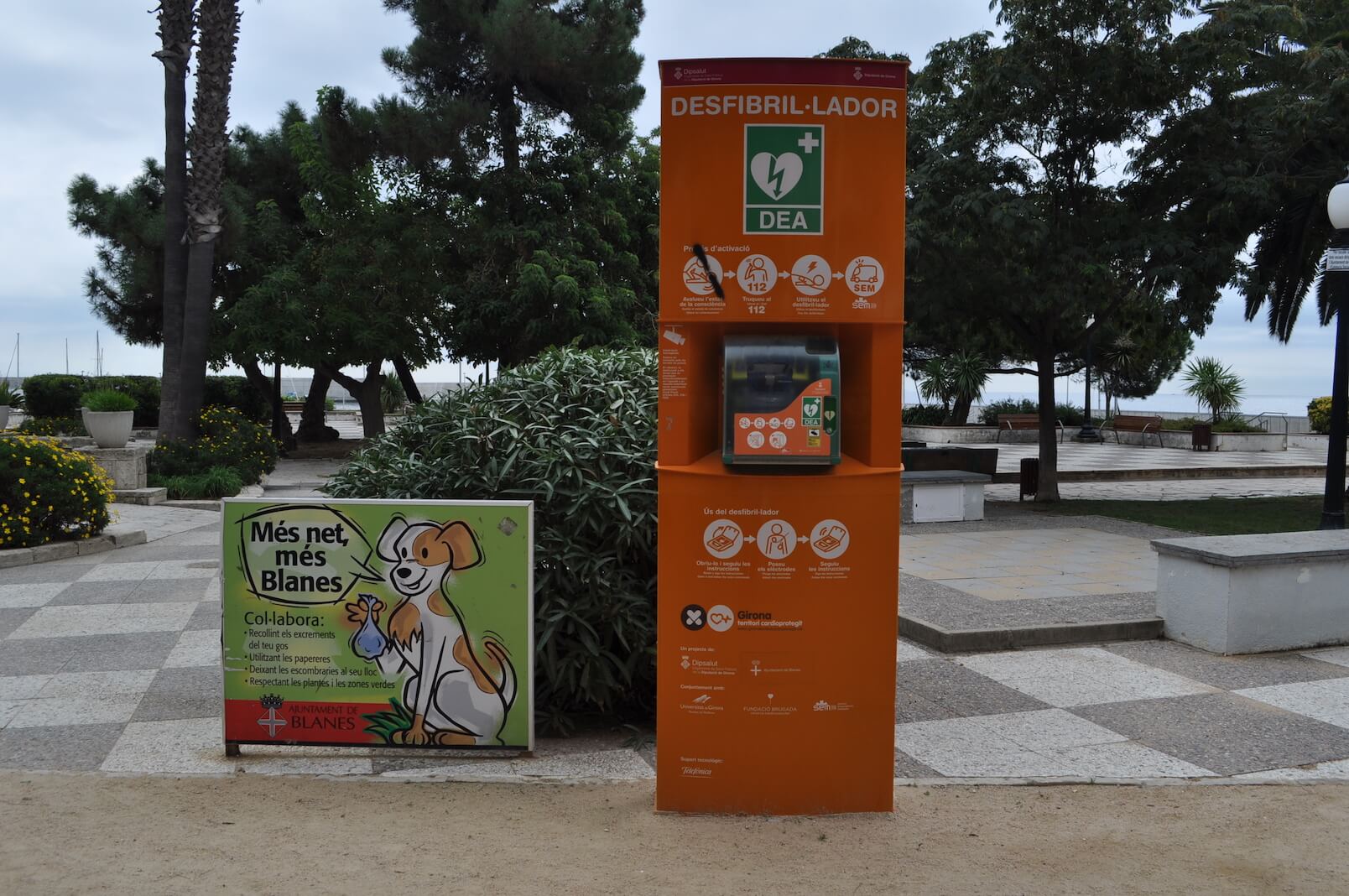
Here and there are defibrillators. I don’t know usage statistics, but for someone it can save a life.
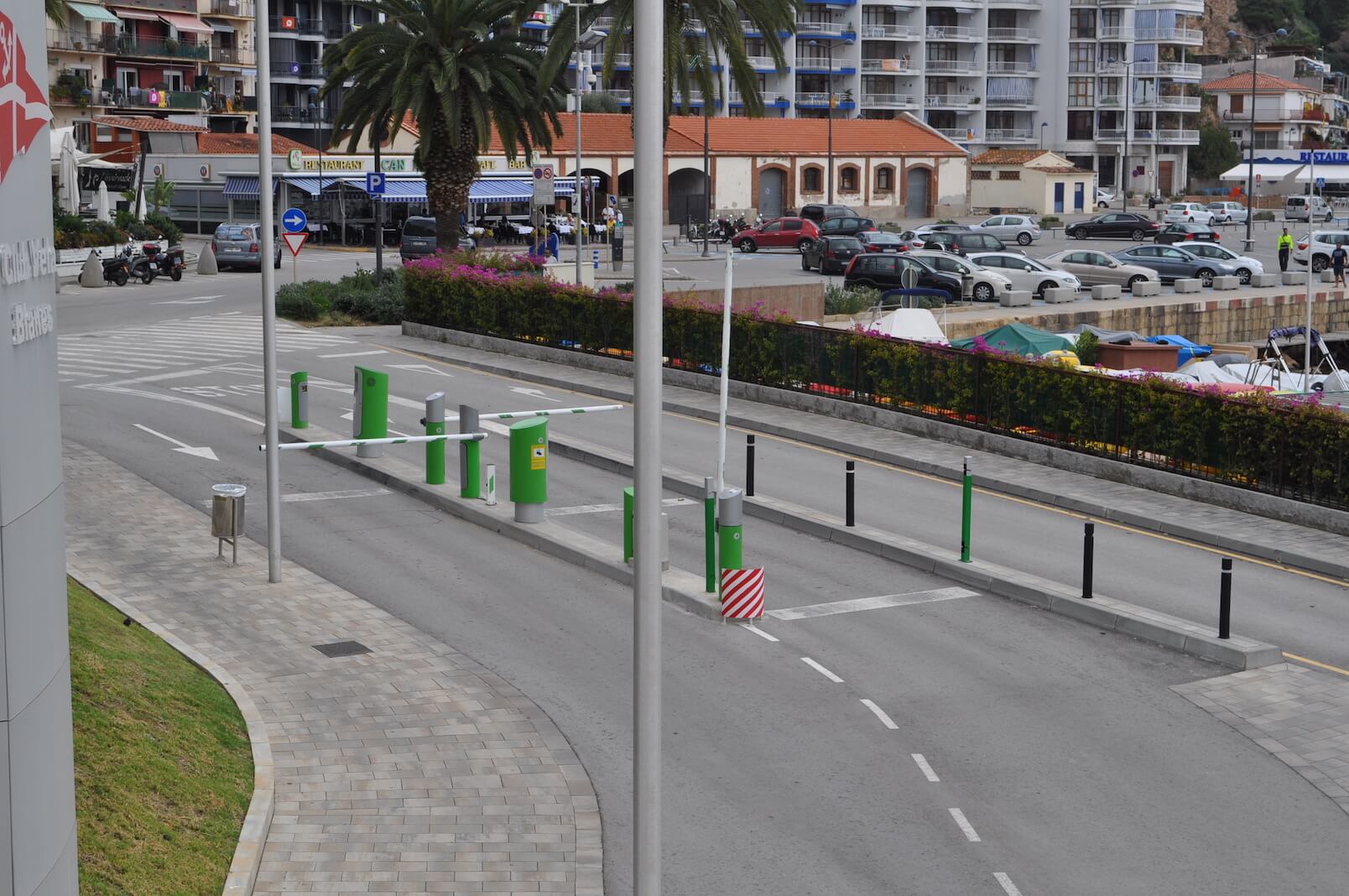
A girl on a skateboard drove into the barrier on the left and knocked him down. After about 10 minutes, two guys in the form of city service arrived and fixed everything. While they were not there, that girl with friends amusedly walked back and forth with a fallen partition in her hands, trying to attach her to her place.
People are friendly, smiling and open. Everyone greets, sincerely smiling. Some people hum or whistle right in the shops (maybe I was lucky, but I came across very melodic sellers. They whistled really cool!).
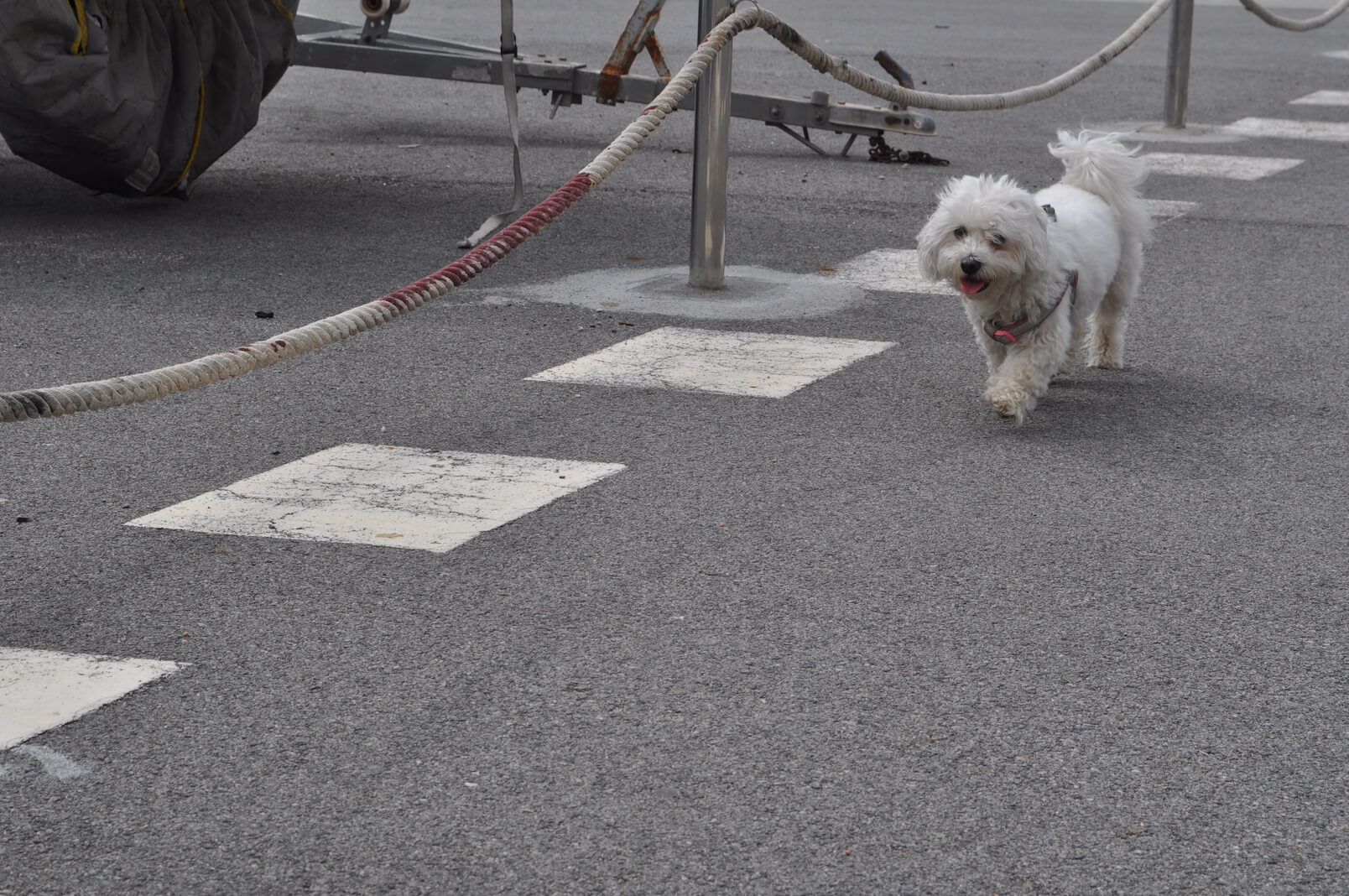
Dogs are loved here. And different, and not like in St. Petersburg: there are 15 dogs at home, 13 of them are dwarf spitzs. It happens that one person leads immediately three or four dogs. In a cafe, sometimes for dogs they ask for a bowl of water.
Weather. Well, everything is simple. In St. Petersburg at any time of the year it is windy, damp and cloudy. It’s difficult to wake up even in the summer, and it’s better to leave the house in a scarf and a light jacket (
In Blanes, in October, he wore a T-shirt. It is very sunny, a lot of strength and energy, get enough sleep faster and easier to get up. The warm weather in the fall was so unusual that I enjoyed just going for bread in the morning.
Blanes is located on the Costa Brava, which is considered colder than the coast in southern Spain. But despite this, throughout the trip (September - mid-October) it was possible to swim. Jellyfish sometimes come into the sea, but rescue personnel on duty claim that they are not dangerous. We happened to encounter rhizostomes ; a slight burning sensation at the point of contact, nothing critical.
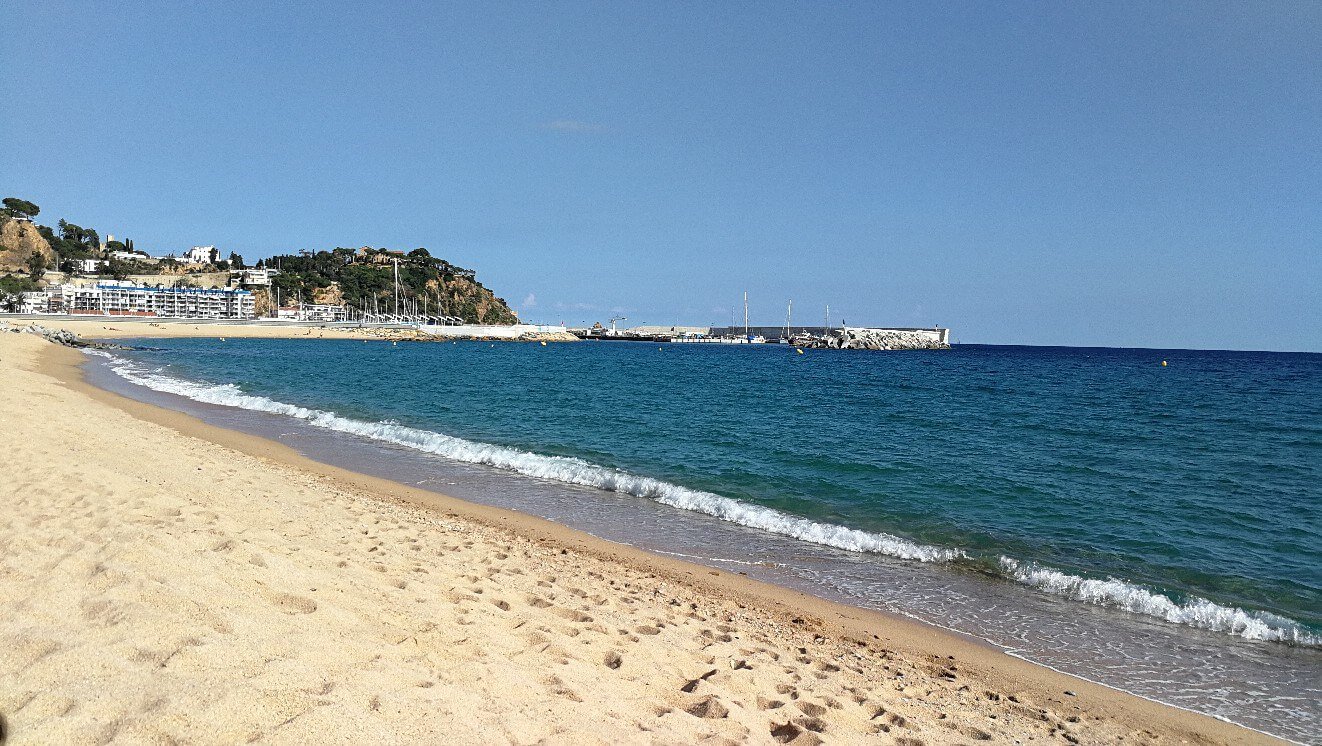
This is a city beach, there are practically no jellyfish. Our acquaintance with the local representatives of the Scyphoid classhappened on another beach a 20 minute walk from Blanes.
He told about the positive sides, is it time about the negative? Figures. Instead of negative moments, there were unusual moments.
- The stove was gas, with gas in cylinders. At one sudden moment, the gas ran out, and it turned out that on weekends they closed not only most stores, but also the service responsible for the delivery of new cylinders. However, this is solved by the presence of a spare cylinder. We had it, but by then we had used it up, and the landlady did not expect such gas gluttony from us and did not prepare another one. And we did not know how many cylinders are enough, and we did not ask.
- Unusual garbage collection system: inorganic was taken three times a week, four - organic. Therefore, on some particularly muscular days, we went with garbage bags to the main city square and threw it there. But in the main square there was no container intended for plastic (only paper, glass and organics), so then I went to another square with a separate bag.
- Many shops do not work during the day, only in the morning and in the evening.
- People around are smiling.
- Ice cream is sold in packages of four.
- Flocks of wild parrots live in the crowns of the plane trees of Barcelona. They say the locals do not like them: squealing in the morning.
- Tea is not particularly drunk here, they prefer coffee. If you take tea in a cafe, be careful - it is sometimes considered an unusual overseas drink here, and the price is set accordingly.
- It’s sad without a cat.
Now about the money. Food prices are about the same as in St. Petersburg. Something more expensive, something cheaper. Barilla pasta, for example, costs the same. And wine is cheaper. There are baguettes for 40 cents, for euros and a half; all very tasty. The cost of food (not including a cafe) for a month for two is 300 euros. A minute of very important information: the average grocery check is 7.40 and the median is 4.50.
Food in a cafe is more expensive than in St. Petersburg; coffee is a little cheaper. Business lunch - from 10-12 euros. Local appetizer patatas bravas (fried potato wedges in red pepper and spices) 5 euros. Interestingly, the same size portion of french fries costs two times cheaper. Coffee with chocolate and churros ≈7. Together with tapas and sangria to feast - 17 euros.
On Barcelona T-10 passes, one trip by metro / bus within the city limits is 1 euro, but you can change trains within 75 minutes.
Clothing, accessories - you can find great products at the price of Russian H & M / Zara, sometimes cheaper.
The connection is expensive, but the availability of mobile Internet more than pays for itself. On the way back there was a transplant in Amsterdam - Simka worked there too, conveniently.
Apartments on AirBnb (room with kitchenette + bedroom) per month 870 euros - this is taking into account a 40% discount when booking from a month.
The wildest fact I know about Spain: they say that the most effective way for a non-IT person to move there is to live there for three years, and then with an expired visa (i.e. being illegally) apply for relocation. Of those who did this, someone lived almost all three years illegally (and you can even send children to local schools!), While someone only lasts one month.
Summarizing what was said
To live in another country, feeling not quite a tourist, but a little local, was great. There is no feeling of constant rush, the need to get to all places in a few days, try all the dishes, lie on all the beaches. A measured life, the usual daily routine - and at the same time new impressions at every step. I felt like a child, re-learning the world around him.
If possible, be sure to arrange yourself such a trip. It will be interesting.
